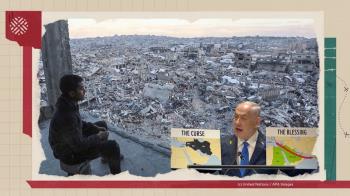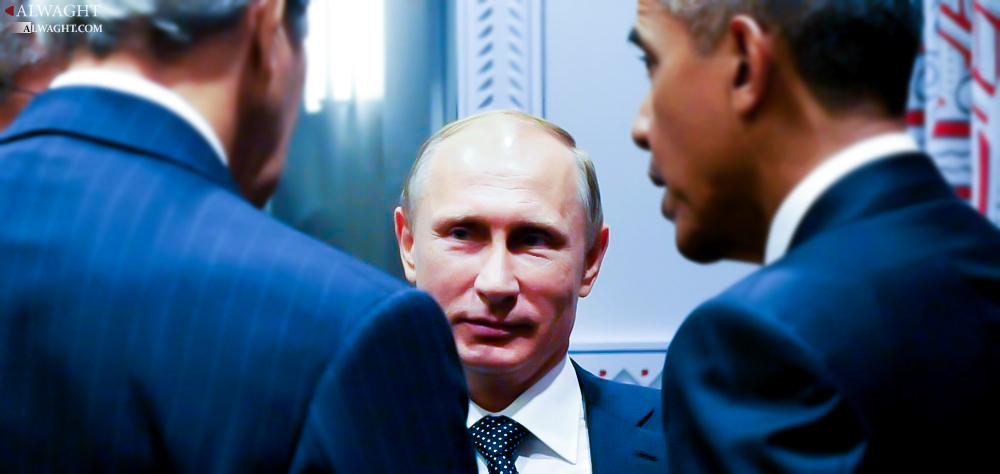Alwaght- The post-Soviet Union Russia’s feeling of insecurity and threats, particularly in the time of leadership of Vladimir Putin, has gradually led to Moscow’s taking anti-Western policies. Moscow’s feeling of threats from the West can be tied to three reasons: severe decline of Russia’s national power and influence in comparison to those of the US in post-Soviet era, suffering weakness and domestic crisis during presidency of Boris Yeltsin, and West’s taking measures that gave Moscow a sense of encirclement.
Due to these issues, the West has failed to have influential relations with Moscow after fall of the Soviet Union. These reasons, in turn, led to rejection of the Western liberalism's values and establishments and revival of nationalism in Russia. The rise of nationalism was driven by the Western behavior with Russia, as at the same time Yeltsin's destructive political and economic policies and his introduction of Russian moving towards Western capitalism affected the Russian public opinion’s view about Western values and interests.
NATO’s expansion to the East during the 1990s and its backing for Kozovo's Albanians against Serbia, Russia’s traditional ally, disappointed the Russians, particularly President Yeltsin, about transforming Russia into a partner for the US and merging Russia into the West. This came while the Russian elites and even the ordinary people in their description of the Russian identity highlighted Russia’s place as a rival to the US. In their eyes, Mikhail Gorbachev, the last leader of the Soviet Union, and Boris Yeltsin are hated not because of disorder and chaos during their terms in office but because they impaired Russia’s place as a key world rival of the US. It is very significant for the Russians not to be pushed to the sidelines on regional and global stage. This perhaps is the main reason that the popularity of President Putin is more than any other time.
One of the issues that very critically added to the Russia’s feeling of insecurity was Russian army’s defeat during its repression of the Chechenia separatism from 1994 to 1996. This loss was very humiliating for the Russian army. The Chechenia crisis pushed the newly-founded post-Soviet Russian government to the brink of collapse.
In March 1999, the three countries of Poland, Czech Republic, and Hungary became members of NATO. This was very worrisome for the Russians because the three countries played the role of defense line between the Soviet Union and the West. In fact, the Russian leaders were worried that they under some conditions could become victims of NATO’s expansion, especially when in April 1999 the members of the Western military bloc approved new strategy, allowing it to conduct military operations beyond its borders in the Balkans and Caucasus. NATO’s military action against Serbia added to the Russian worries. It was in such conditions that even the Russian democrats concluded that Washington was treating Moscow like an arrogant hegemon and posing challenges to Russia’s national and nuclear interests. In 2004, additional three countries of Lithuania, Latvia, and Estonia joined NATO’s body, three countries that are considered by Moscow Russia’s “near abroad”. This issue even fueled among the Russian elites the feeling of their country being exposed to foreign threats and losing regional sway.
In February 2007, the Russian President Vladimir Putin in Munich Security Conference came clean in criticism of Washington, saying “one state and, of course, first and foremost the United States, has overstepped its national borders in every way. This is visible in the economic, political, cultural and educational policies it imposes on other nations.” The Russian leader lashed out at the US' militarism around the world, as well as Washington’s disregard of the international law. In fact, it was the first time that following collapse of the Soviet Union leader of a global power openly disparaged the US. Furthermore, in February 2008, President Putin in a speech that gave out his anger over the course of the American foreign policy said “we closed our military bases in Cuba and Vietnam but what we got in return? New US military bases in Romania and Bulgaria and establishment of missile defense shield.” The Russian president continued that the US military spending was tens of times as big as that of Russia, and that Moscow responds to this by renewing its army and weapons.
From Putin's presidency on, the confrontation between Russia and the West saw ongoing rise. The analysts began to talk about rise of new cold war between the US and Russia. This was even intensified after Moscow quitted the Treaty on Conventional Armed Forces in Europe (CFE). Then President Putin warned that once the US activated its missile defense shield systems in Poland and Czech Republic, Russia will launch nuclear strikes on the two hosting countries.
Robert Legault, the professor at Columbia University, has commented on the fresh developments of the US-Russia relations, saying that all over the post-Cold War time the two powers adopted the “deliberate ambiguity”, in the sense that none of them could make out that the opposite side was a friend or an opponent. But now everything has changed, and everyone regards the other as its enemy, according to Professor Legault.
For two reasons the present Russian confrontation with the US cannot be deemed as a new cold war, and the two still can work together: first, the current Russian- American encounter just unlike the Cold War time lacks an ideological aspect and in other words Moscow’s actions are not driven by communism. Second, Moscow and Washington still have common fields of cooperation. For example, they are still committed to the Treaty on Non-proliferation of Nuclear Weapons.
Despite all these challenges, Russia under President Vladimir Putin has been eyeing return to the world stage as a global superpower and play an influential role regionally and internationally. Moscow’s serious entry to the Syrian crisis comes as part of this Russian effort. Actually, the Russians figured out that backing down, retreating, staying silent, and keeping neutral will neither secure Russia’s interests nor does it firm up Moscow’s place as a strong actor on regional and international stages, rather, they will gradually push it to the sidelines. If Russia seeks distancing NATO from its borders, it should make it busy thousands of kilometers away.



























